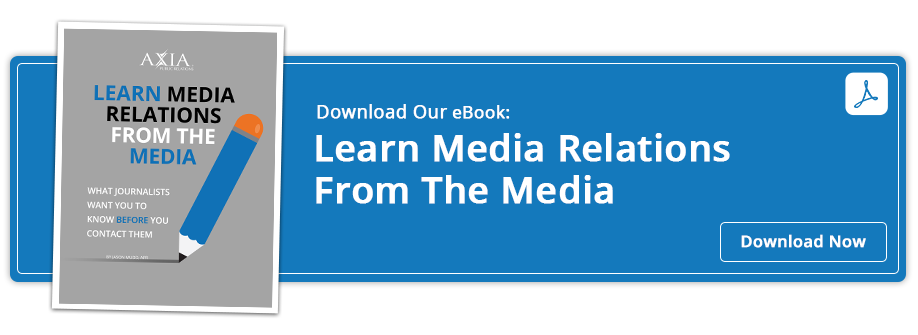Use PR to answer your most pressing media relations inquiries
The subject of media relations can get confusing. Who receives news coverage and who doesn’t is often the subject of endless debate. Use PR to help make it all easier to understand.
Why won’t the media cover my company?
You have to put yourself in the journalists’ shoes. While you’re asking why they won’t cover your company, they’re asking, “What’s in it for me?” Your press release or pitch must answer that question.
In general, journalists are more likely to cover larger companies and prominent people. Often, news organizations will assign reporters to cover specific large companies such as Wal-Mart and Apple. Therefore, almost anything those companies do becomes news.
To break through this barrier, your content must meet a higher standard. Read on to find a few ways to accomplish this.
Make your information interesting. This may sound like a no-brainer, but apparently, it isn’t. Some companies insist on sending press releases for every little thing. Then, they compound this mistake by filling those press releases with long, meaningless quotes from everyone involved along with enough boring minutia to put anyone to sleep. While everyone understands that you need to recognize all the corporate heads and thank your donors, a press release is not the place to do it.
Instead of only highlighting your company, focus on the value your product brings to the community or other businesses.
Tell your story. The things that make your business unique could be newsworthy.
Why don’t reporters get back to me?
The simple answer is that they are very busy. Of course, everyone is busy, including you, but you still find the time to return calls and emails and you believe that journalists should be able to do the same.
In reality, journalists receive over 100 pitches and press releases just like yours every day, and most of them write only one article per day (see our blog post here). Unfortunately, the press releases that don’t interest them, or those pitching ideas on subjects they don’t cover, get tossed. Unless they have a personal relationship with you, they feel no obligation to contact you about it.
Should I worry about being misquoted?
Your company’s CEO, spokesperson or anyone else authorized to speak to the media must be well trained. If he is, then being misquoted should not concern you. Some tips to remember include:
Never say anything to a reporter that you wouldn’t want to see in print. You might be tempted to lighten the mood with a funny story about your ex-husband or information about an embarrassing, youthful indiscretion, but these kinds of things typically have no place in a professional media interview.
Prepare your key messages prior to the interview and stick with them. If the reporter changes the topic, find ways to quickly bring it back.
Above all, don’t get into an argument or war of words with a reporter. Remember, he buys his ink by the barrel, so he has the upper hand. The right training will teach you how to remain calm and get through any disagreements.
Do I really need to hire a PR firm to handle media relations?
Yes, you do. Okay, we admit, we are a bit biased on this point, but that doesn’t mean we’re wrong. There are many advantages to allowing a PR agency to handle all this for you.
For example, we talk to reporters all the time and have already established these important relationships. Therefore, when your company has news to share, we are primed and ready to help get you the media coverage you deserve.
At Axia, we work as your well-connected, results oriented partner to gain positive news coverage and help increase your profitability. Download our e-book Learn Media Relations from the Media or contact us today to find out how we can help you get the necessary media attention to drive you to the top of your industry.
Lisa Goldsberry is a writer for Axia Public Relations with more than 15 years of public relations experience. She specializes in business, higher education and technology PR. Connect with Axia Public Relations on Twitter @axiapr.
Topics: media relations, public relations



Comment on This Article